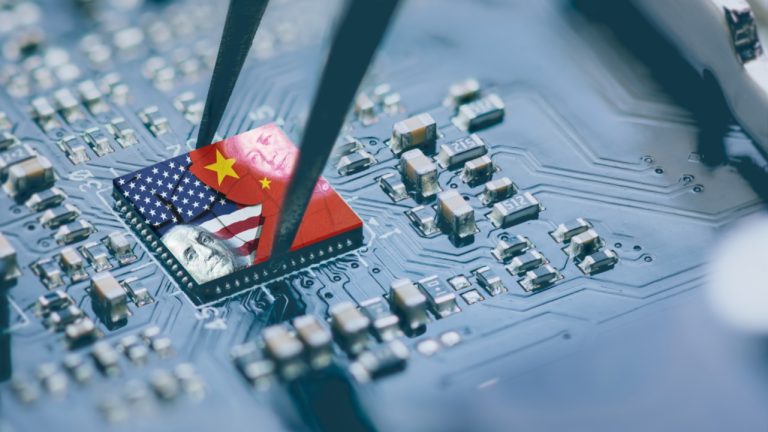
The government in Washington is reportedly considering further limiting China’s access to U.S. processors used in artificial intelligence (AI) applications. The current restrictions, which were introduced last year, allow Chinese companies to source the chips through overseas subsidiaries.
Washington Seeks to Further Curb Chinese Access to American AI Chips, Sources Say
The administration of President Joe Biden may broaden the curbs on the shipments of U.S. semiconductors used for AI to Chinese companies to include their units abroad, Reuters reported on Friday, quoting people familiar with the matter.
The measures announced in 2022 sought to thwart Beijing’s military advances by preventing the supply of American AI chips and chipmaking tools to China. However, the initial restrictions did not cover overseas subsidiaries of Chinese firms.
This meant they could still be imported into the People’s Republic or accessed remotely by China-based users, the report noted. However, the loophole is likely to be closed soon, according to one of the knowledgeable sources.
Greg Allen, a director at the Center for Strategic and International Studies, is convinced that companies from China are able to acquire the processors. “Absolutely, Chinese firms are purchasing chips for use in data centers abroad,” he said, pointing to Singapore, a major hub for cloud computing, as an example.
Washington has been trying to halt the progress of China’s AI capability which currently depends on access to American chips. According to a study by the Center for Security and Emerging Technology (CSET) think tank released earlier this year, almost all AI chips procured via Chinese military tenders over an 8-month period in 2020 were designed by U.S.-based companies Nvidia, Xilinx, Intel, and Microsemi.
In August of this year, the U.S. government expanded a restriction on the exports of AI chips made by Nvidia and AMD to China to include certain countries in the Middle East. The new measures, expected as early as this month, are likely to cover other suppliers as well, the sources said.
Meanwhile, the launch and rising popularity of AI-based chatbots and assistants like Chatgpt and others have caused a deficit in the market for AI processors. Recent reports revealed that Chatgpt’s developer, Openai, is exploring making its own AI chips to deal with the shortage.
Do you think the U.S. will expand curbs on AI chip shipments to Chinese companies in the coming weeks? Tell us in the comments section below.
Comments
Post a Comment